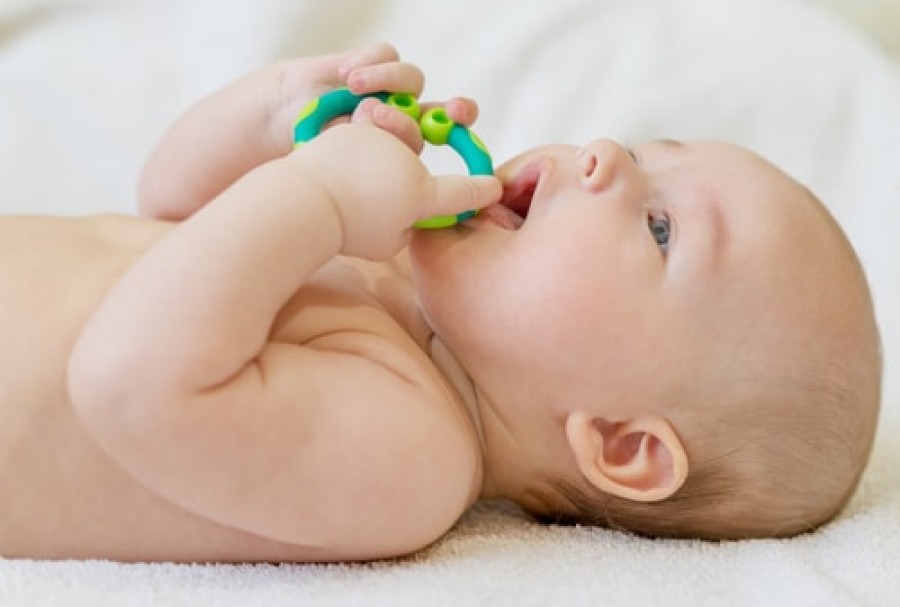Teething: Symptoms, Health Issues & Soothing

Wow, your baby is growing teeth. This is crucial stage of any baby’s life. Teething can be with or without problems. If there are problems you need some strategies to deal with them, as your baby can become very cranky and grumpy.
Teething can cause different sorts of issues, but your baby is unable to tell you if they are in pain. Therefore it is important to recognise the symptoms and realize the potential severity of the problem.
In order to prepare for the potential difficulties you must understand the teething process.
General Baby Teething Symptoms
Your baby’s gum will redden and may get swollen too. They may start drooling heavily, both awake and asleep. Sleep may become problematic, you baby may stay up more, sleep less, and show signs of increased restlessness.
Your baby may start rubbing or playing with their ears. Discomfort may lead them to bit everything they can grab. Some babies become disinterested in meals and drinks, decreasing their eating and drinking. Your baby may become very fussy and cranky during teething process.
A few may also get red cheeks and rashes on their face and chin.

Baby Teething Health Issues
Your baby might face some common health issues during the teething process.
Disinterest in eating could lead to weight loss. This can be a cause for concern if too much weight is lost. Lack of food intake and proper sleep could lead to your baby becoming an easy target for diseases, such as flu or loose motions.
Refuse drinks can cause dehydration in infants.
Some infants also get fever. High fevers or any other serious health issue during this period may not be related to teething, so it is highly recommended to see your health care professional for a proper diagnosis.

First Teeth
Teething generally starts between five and ten months, but this is liable to change. Every baby is different and every baby gets their first teeth at different ages. Delay can be because of different growth factors, or occasionally due to birth defects.
Teeth may also be late due to hereditary factors. A little late is normal. If your child has not teeth by around 16-18 months of age consult your doctor immediately. If your baby is otherwise healthy and meeting their milestones it may not be a point of concern if their first teeth are a little late.
Taking Care of Teething Baby
The teething process is painful for most of the babies. While teething, their gums swell from the pressure of tooth trying to erupt from the gum. Eating and drinking can be painful, causing your baby to avoid these activities. As a result they can become irritable and grumpy, requiring more attention and care.
You can try a number of things to sooth your baby:
- Give your baby more attention and time.
- Try silicon teething rings. Babies like to chew and bite while teething. Silicon teething rings are a safe, healthy way to sooth a teething baby.
- As dummy can also be used to comfort a baby while they are teething.
- Some soft, cold fruits and veggies (soft apricots, avocados, plums, cucumber etc) can help relieve the pain. Remember not to provide any hard veggies or fruits to your baby.
- Brushing your baby’s teeth will also help. And your baby may enjoy having their teeth brushed.
- Washing gums with cold water can help.
- Your baby may also enjoy biting down on something frozen during this process.
Helpful Tip(s)
Some medications, such as paracetamol, and rubbing ointments can be used. Before using any medication for your baby consult your health care professional.


